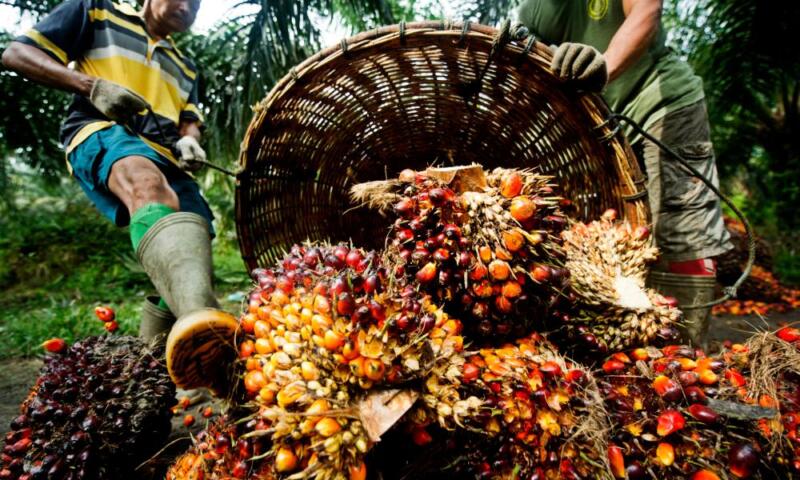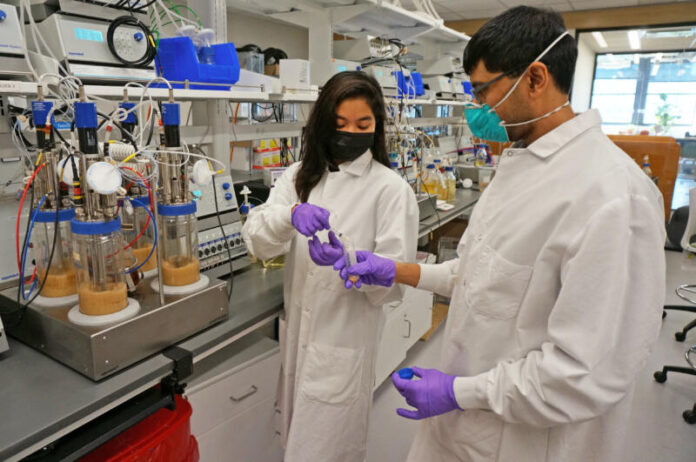In a race to find a solution to the dependence on palm oil, lab-made alternatives are being created.
Palm oil accounts for 40% of all oil used worldwide, according to the WWF (World Wildlife Fund). It is extremely popular in many industries, from food production to cosmetics. A large component of this popularity is that palm oil is odourless, tasteless and lacks any colour.
Palm oil is also favoured by many industries due to its smooth texture, and ability to maintain its properties in high temperatures.

However, the destruction that palm oil causes has sent companies looking for alternatives. One of those is US company C16 Biosciences, who have created a new product called Palmless. The company was set up by CEO Shara Ticku, who created the business after flying into Singapore and finding the air quality to be so bad that she had to wear a mask.
“The air was toxic because they were burning the rainforest in Indonesia,” she said.
Five years after creating C16 Biosciences, Palmless is set to make a mark in the palm oil alternative market. This innovative product is created using yeast, which is then fed on sugar. The sugar is sustainably sourced from sugar cane plants grown on land that is already in use for arable farming. As a result the yeast releases an oil that is very similar in its properties to palm oil.
And what is even more encouraging is that the yeast takes only days to release the oil.
“Our process takes less than seven days from start to finish,” says a spokeswoman for C16 Biosciences. “For a traditional oil palm tree, the oil wouldn’t be ready to harvest until years after the seed is planted, and most trees don’t reach peak production until seven years later.”
Embed from Getty ImagesAt the University of Bath, UK, Chris Chuck, professor of bioprocess engineering, is developing another yeast-derived alternative. Together with his colleagues, who are biologists, chemists, mechanical engineers, chemical engineers and food scientists, he found a yeast that was sturdy and produced high yields of oil.
“You put the yeast in a horrendous environment, forcing it to evolve so it can survive. You’re simply speeding up a natural process,” he explains.
They created a strain of yeast called metschnikowia pulcherrima (MP). MP is not a fussy eater- this yeast will even eat food waste and grass. And the left over yeast biomass can be used for other products too, such as a soy protein substitute.
They have now created a private company called Clean Food Group, in the hope of being a serious competitor to palm oil.
“There’s a lot of excitement and hype – a lot of people rushing into this space. And that’s great,” says Professor Chuck. “The mounds of oil produced globally are so enormous – there’s space for everybody.”

